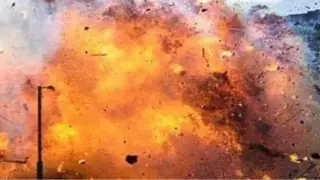
Tahawwur Rana (File )
Rana was first mentioned in a charge sheet by the National Investigation Agency (NIA) in 2011. In the chargesheet, which also names the main conspirators, the NIA detailed how Rana facilitated logistics and financial support to Lashkar-e-Taiba spy David Coleman Headley through his immigration consultancy business
One of the Mumbai terror attack conspirators, is being extradited to India. It took almost 14 years to extradite Tahawwur Rana from the US to India and put him on trial. US President Donald Trump finally gave his nod for extradition when he hosted Prime Minister Narendra Modi at the White House in February. A bog in legal procedures and review petitions thwarted Rana's extradition since the very first chargesheet was filed against him in 2011.
On April 4, the US Supreme Court rejected a final plea to stay Rana's extradition, exhausting all his legal options. However, behind the scenes, India's diplomatic moves ensured that there were no further hiccups. Tahawwur Rana was arrested in October 2009 in Chicago on charges of having links to Lashkar-e-Taiba and plotting to attack the office of a Danish newspaper that published cartoons of the Prophet.
However, he was not named in the first chargesheet filed by the Mumbai Police in 2009. Rana was first mentioned in a charge sheet by the National Investigation Agency (NIA) in 2011. In the chargesheet, which also includes the names of the main conspirators, the NIA detailed how Rana provided logistical and financial support to Lashkar-e-Taiba spy David Coleman Headley through his immigration consultancy business. However, it was Headley, Rana's childhood friend, who framed him and disclosed it while deposing before a special court in Mumbai in 2016.
In 2019, India officially submitted a diplomatic note to the US for Rana's extradition. On June 10, 2020, India filed a complaint seeking the provisional arrest of the former Pakistani Army officer for the purpose of extradition. Rana opposed it on the grounds of danger. His legal team argued that since Rana had been prosecuted on similar charges in the past, it would be illegal to prosecute him again. The magisterial judge denied his request.
The then US President Joe Biden had supported Rana's extradition to India on the basis of a treaty signed by the two countries in 1997. Since 2020, Rana has filed several petitions against his extradition in lower and federal courts, but without success. He approached the US Supreme Court in November 2024 after the Court of Appeals for the Northern Circuit in San Francisco ordered his extradition.
However, the Supreme Court on January 21, a day after Trump was sworn in as the US President, rejected the review petition for a stay on Rana's extradition. On February 11, a day before Prime Minister Modi's visit, Foreign Minister Marco Rubio formally authorised Rana's extradition to India. Trump made this public announcement at a joint media briefing with Prime Minister Modi.













Copyright © 2025 Top Indian News
